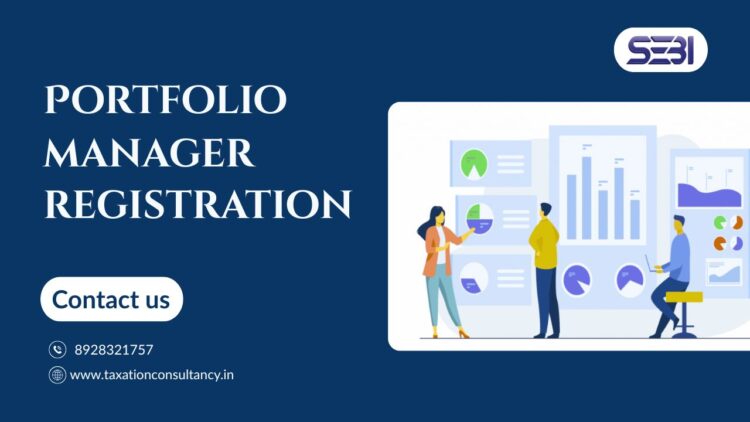SEBI Guidelines for Portfolio Management – Taxation Consultancy (Complete 2025 Guide)
If you’ve ever wondered, “How do Portfolio Management Services work, and what rules does SEBI impose on them?”, you’re not alone. With investments booming across India, more people are exploring PMS (Portfolio Management Services) to get professional help in managing wealth. But PMS is not just about investing—there are rules, taxes, eligibility conditions, and compliances that every investor and consultant should know.
To make it simple, think of PMS like hiring a seasoned driver to steer your car (wealth) through traffic (market). You trust them to follow the rules of the road—SEBI’s guidelines are exactly those rules.
In this detailed article, we will break down SEBI guidelines for portfolio management, PMS eligibility, taxation rules, compliance requirements, and how taxation consultancy plays a vital role—using plain English and very little jargon.
A complete guide on SEBI guidelines for portfolio management, pms license rules, pms eligibility, and taxation consultancy for investors in 2025.
✅ Understanding Portfolio Management Services (PMS)
Portfolio Management Services are professional investment services where an expert manager builds and manages a portfolio of stocks, bonds, and securities on behalf of a client.
In simple words:
You give money → The PMS manager builds your investment portfolio → You get regular reports and investment growth.
Unlike mutual funds, PMS portfolios are individually managed. Every client has a separate account and portfolio—not a pool model.
✅Why SEBI Regulates PMS
SEBI (Securities and Exchange Board of India) works like the traffic police of the financial market. Without regulation, investors could be taken for a ride by fraudulent or unqualified managers.
SEBI ensures:
- Investor protection
- Transparency in operations
- Qualified managers handle money
- Fair reporting and auditing
- No misuse of client funds
✅Types of PMS in India
A. Discretionary PMS
You give full authority to the manager. They buy and sell without asking you every time.
B. Non-Discretionary PMS
Manager suggests investments, but you approve before execution.
C. Advisory PMS
Only recommendations are provided; decisions are yours.
✅PMS vs Mutual Funds – What’s the Difference?
| Feature | PMS | Mutual Funds |
| Portfolio | Individual | Pooled |
| Minimum Investment | ₹50 lakh | As low as ₹500 |
| Customization | Yes | No |
| Risk | Higher | Medium |
| Fees | Higher | Lower |
If mutual funds are a school classroom learning together, PMS is a private tutor giving personalized guidance.
✅Who Can Offer PMS – PMS License Requirements (SEBI Rules)
To offer PMS in India, an entity must hold a valid PMS license issued by SEBI.
PMS License Requirements include:
- Minimum net worth: ₹5 crore
- Registered as Body Corporate
- Appoint qualified portfolio managers with SEBI certification
- Compliance officers & audit structure
- Fit & proper criteria under SEBI regulations
Without a PMS license, offering portfolio management is illegal.
✅PMS Eligibility Criteria for Investors
SEBI has strict PMS eligibility rules to ensure only financially prepared investors participate.
✅ Minimum investment – ₹50 lakh
✅ Funds can be paid only via cheque/banking channels
✅ KYC – PAN, Aadhaar, Address proof, Income proof
✅ Investors must sign a detailed client agreement
✅ NRIs can invest through NRO/NRE accounts (subject to FEMA rules)
This protects small investors from high-risk exposure.
✅SEBI Guidelines for Portfolio Management (2025 Updated)
Here are simplified versions of the key SEBI guidelines for portfolio management:
✅ A. Mandatory Registration
Every PMS provider must be registered with SEBI.
✅ B. Client Account Segregation
Each client portfolio must be managed separately.
✅ C. Minimum Investment Rule
Clients must bring ₹50 lakh minimum.
✅ D. Reporting & Transparency
Managers must:
- Send portfolio reports quarterly
- Provide audited statements annually
- Maintain proper records
✅ E. No Guaranteed Returns
PMS firms cannot promise profits. Anyone guaranteeing returns is violating SEBI rules.
✅ F. Fair Advertisements
No misleading performance claims, no fake testimonials.
✅ G. Risk Disclosure
Investors must be told risks clearly before signing up.
✅ H. Custodian Requirement
All PMS must appoint a SEBI-registered custodian for safeguarding securities.
✅ I. Fees Structure Transparency
All charges must be clearly listed—no hidden fees.
✅SEBI Rules on Client Agreements & Disclosures
Before investing, the client must receive:
- Service terms
- Fee structure
- Risk disclosure statement
- Investment strategy
- Exit & termination rules
SEBI ensures there is no fine print trickery.
✅ Fees and Charges – SEBI’s Rules
PMS charges are typically:
✅ Management fees
✅ Performance fees
✅ Brokerage & transaction charges
✅ Audit charges
✅ Custodian charges
SEBI guidelines make sure:
- All fees are disclosed upfront
- Performance fee only after crossing a “high-water mark” (client must recover losses first)
No surprises later!
✅ Taxation on PMS Investments
Taxation is one of the most confusing areas for PMS investors, and that’s where taxation consultancy comes in.
✅ How PMS taxation works
Tax is applied at the investor’s individual level, not at the PMS level.
| Type of Income | Tax Treatment |
| Short-Term Capital Gains (STCG) | 15% on equity |
| Long-Term Capital Gains (LTCG) | 10% above ₹1 lakh |
| Dividend Income | Taxed as per slab |
| Debt Instruments Gains | Taxed based on holding period |
✅ Important Point
Unlike mutual funds, PMS deducts taxes on every transaction, because securities are bought and sold in your name.
✅ Example
If your PMS buys Infosys and sells it after 6 months for profit, you pay STCG tax.
A mutual fund investor pays tax only when they sell units.
✅ Role of Taxation Consultancy in PMS
A taxation consultant helps:
- Plan capital gains tax
- File taxes correctly
- Offset losses
- Choose debt vs equity mix
- Avoid tax penalties
- Manage NRI taxation under FEMA & DTAA
If PMS is the car, taxation consultancy is the mechanic that keeps it running smoothly.
✅Risks in PMS & Risk Management Rules by SEBI
Major Risks
✔ Market volatility
✔ Concentrated portfolios
✔ Higher fees
✔ Manager dependency
SEBI Risk Protection Measures
- No guaranteed returns
- Clear risk disclosure
- Quarterly reporting
- Audit requirements
- Strict compliance monitoring
✅ Reporting, Audits, and Transparency Requirements
SEBI mandates PMS to:
✅ Send quarterly portfolio statements
✅ Provide audited performance annually
✅ Disclose holdings, gains, losses
✅ Maintain client fund segregation
✅ File periodic reports with SEBI
Transparency keeps investors safe.
✅ Common Misconceptions About PMS
❌ PMS always gives higher returns
✔ No guaranteed returns
❌ PMS is safer than mutual funds
✔ PMS carries higher risk and higher volatility
❌ Anyone can invest in PMS
✔ Only investors meeting PMS eligibility rules can invest
✅ Should You Invest in PMS?
PMS is suitable for:
✅ High-net-worth individuals
✅ Investors seeking personalized portfolio
✅ Long-term wealth builders
✅ NRIs looking for India exposure
Not suitable for:
❌ Very conservative investors
❌ Those wanting liquidity and low costs
❌ Small-ticket investors (below ₹50 lakh)
✅ Conclusion
Portfolio Management Services are powerful investment avenues for individuals looking for personalized, professional wealth management. SEBI guidelines ensure fairness, transparency, and investor protection. Whether you are an investor, a financial consultant, or someone exploring the PMS business, understanding PMS licensing, PMS eligibility, taxation rules, and SEBI regulations is essential.
With the right PMS and proper taxation consultancy, investors can not only grow wealth but also optimize taxes and stay fully compliant with Indian laws.
✅ FAQs
1. What is the minimum investment required to open a PMS account?
The SEBI-mandated minimum investment is ₹50 lakh.
2. Can an NRI invest in PMS in India?
Yes. NRIs can invest through NRE/NRO accounts subject to FEMA rules.
3. Do PMS guarantee returns?
No. SEBI prohibits any guaranteed, fixed, or assured return promises.
4. How is PMS taxed?
Taxes are applied at the investor’s name for each transaction—STCG, LTCG, dividend taxes, etc.
5. Do PMS require a SEBI license?
Yes. A firm must hold a valid PMS license, meet the ₹5 crore net worth requirement, have qualified managers, and follow all SEBI guidelines.















